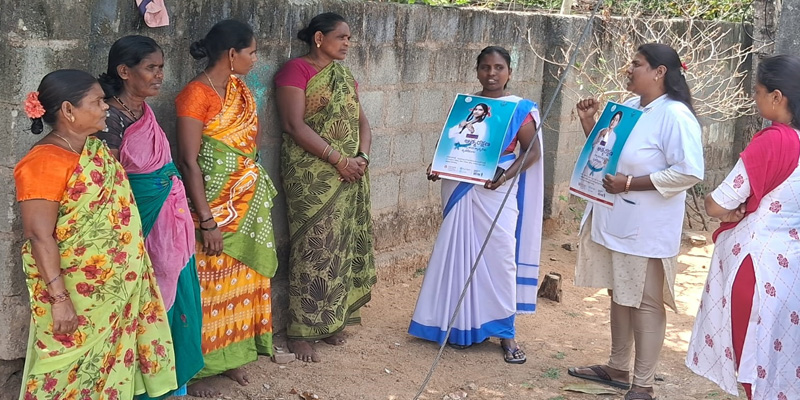Cervical cancer is a leading cause of cancer-related deaths among women globally, with a particularly high burden in developing countries where it accounts for more than 25% of all cervical cancer cases. In India alone, over 120,000 new cases are reported every year.
However, the good news is that cervical cancer is both preventable and treatable, especially when detected early. This is why raising awareness about the importance of regular screening is crucial. January is designated as Cervical Cancer Awareness Month, during which various campaigns are organised all over the world to educate people about the nature of this disease.

One of the main causes of cervical cancer is the Human Papilloma Virus (HPV), of which there are over 100 subtypes, with at least 14 known to cause cancer and two responsible for around 70% of all cervical cancer cases. Since HPV is most commonly transmitted through sexual activity, it is common for most sexually active women to acquire it at some point in their lives. In most cases, the infection clears on its own within a few months. However, for a small subset of women, the infection can persist and eventually lead to cervical cancer.
Several factors increase the chance of HPV persistence and cervical cancer progression, such as smoking, early marriage, multiple pregnancies at a young age, multiple sexual partners, and co-infection with other sexually transmitted diseases. Research shows that long-term use of oral contraceptives may also put women at a higher risk of developing cervical cancer.
Human Papilloma Virus (HPV) vaccines play a major role in the prevention of premalignant lesions and cancers of the cervix especially if targeted against girls aged 9-14, before they are exposed to the virus. The Government of India has prepared a road map to roll out HPV vaccination in the country as part of the Universal Immunization Program. At present HPV vaccines are available in the private market. Regular screening also plays a crucial role in the prevention and early detection of cervical cancer and are recommended above the age of 30. Understanding the risk factors and maintaining a healthy lifestyle is also important in the prevention of the disease.